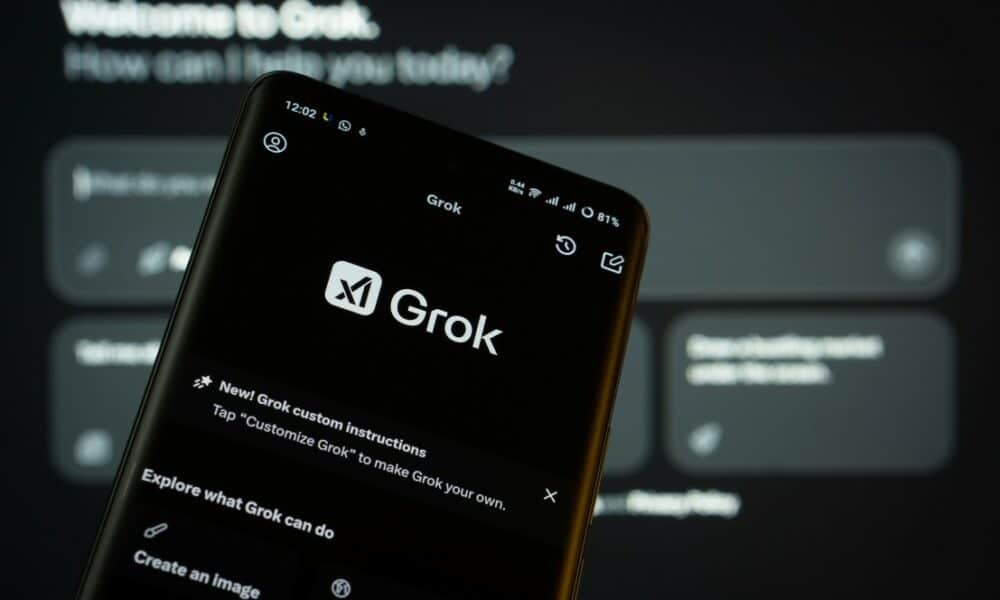Elon Musk has unveiled a major expansion of Grok, his AI creation from xAI, in a calculated bid to rival the ChatGPT juggernaut led by OpenAI’s Sam Altman. The latest iteration, Grok 3, now boasts a standalone mobile app, Telegram integration, and cutting-edge features like voice commands and deep search capabilities. Announced in March 2025, this move underscores Musk’s determination to position Grok as a ubiquitous alternative, challenging ChatGPT’s stronghold in the conversational AI market. It reignites a high-stakes rivalry between two tech titans who once collaborated on OpenAI’s founding in 2015 but now lead opposing visions for artificial intelligence.
The Telegram integration taps into the messaging app’s recent milestone of 1 billion monthly active users, offering Grok free to Telegram Premium subscribers. This expands its reach within one of the world’s most widely used platforms. Meanwhile, the launch of a dedicated mobile app for iOS and Android marks a direct assault on ChatGPT’s mobile dominance, where it has amassed millions of downloads. Musk’s strategy hinges on accessibility and multi-platform presence to embed Grok into everyday life, setting it apart from the OpenAI model he critiques as overly commercialized.
Joe Rogan agrees with Elon Musk, the only artificial intelligence that can be trusted is Grok
Elon Musk “Grok is aspirationally a maximally truth-seeking ai, even if that truth is like politically incorrect”
Other AI like Google Gemini secretly still contain DEI, “The sort of… pic.twitter.com/soIrjgOcNB
— Wall Street Apes (@WallStreetApes) March 27, 2025
New features like voice interaction and real-time deep search further elevate Grok’s appeal. While ChatGPT remains the benchmark for AI assistants, Grok aims to differentiate itself with a conversational flair and live data integration from X, Musk’s social media platform. This offensive reflects his broader goal of making AI a seamless extension of human thought, contrasting with what he sees as OpenAI’s profit-driven approach under Altman’s leadership.
Multi-platform push signals Musk’s ambition
Bringing Grok to Telegram and smartphones via a standalone app is more than a technical upgrade—it’s a market play with sharp intent. Telegram’s billion-user base offers a massive global audience, particularly in regions where the app reigns supreme. Premium subscribers, who pay a monthly fee, now access Grok at no extra cost, potentially boosting both Telegram’s subscriptions and Grok’s visibility.
The standalone app, meanwhile, enters a space where ChatGPT has thrived since its mobile debut. OpenAI’s app has seen millions of downloads, cementing its lead in the mobile AI race. Musk counters with a tailored offering, blending X’s real-time insights with Grok’s signature unfiltered style. This move aims to peel away users seeking a fresher, less restrained AI experience.
Beyond apps, Musk is reportedly in talks with smartphone makers and software firms to embed Grok into operating systems and virtual assistants. Though specifics remain under wraps, such integrations could position Grok as a pre-installed feature on devices, challenging not just ChatGPT but established players like Siri and Google Assistant. This multi-pronged approach highlights Musk’s intent to make Grok a household name across tech ecosystems.
Historic rivalry takes a new turn
The clash between Musk and Altman traces back to their joint venture in 2015, when they co-founded OpenAI to advance AI research for humanity’s benefit. Tensions emerged by 2018, when Musk exited, citing disagreements over the organization’s shift toward profit. OpenAI later pivoted to a for-profit model, securing billions from Microsoft, while Musk launched xAI in 2023 to pursue his own AI agenda.
ChatGPT’s explosive debut in November 2022 shifted the landscape. Within two months, it gained 100 million users, becoming the fastest-growing consumer software ever. Its success propelled OpenAI to a $157 billion valuation by October 2024. Musk responded with Grok in November 2023, branding it an “anti-woke” chatbot with a provocative edge, distinct from ChatGPT’s polished neutrality.
The feud deepened in 2024 when Musk sued OpenAI, alleging it had abandoned its founding mission for corporate gain, with Altman at the helm of this shift. The 2025 Grok expansion escalates this battle, positioning Musk not just as a competitor but as a disruptor intent on dismantling Altman’s empire.
Grok 3’s standout features unveiled
Grok 3 arrives with notable upgrades, strengthening its case as a versatile contender. Key enhancements include:
- Voice commands: Users can now engage Grok hands-free, ideal for multitasking scenarios like driving or cooking.
- Deep search: Real-time data processing, powered by X and other sources, delivers richer, more current responses.
- Conversational tone: Inspired by “The Hitchhiker’s Guide to the Galaxy,” Grok’s witty, informal style sets it apart from ChatGPT’s formality.
These additions target users craving a dynamic, personalized AI, with X’s live data giving Grok an edge in breaking news and trends—areas where ChatGPT’s less frequent updates lag.
Technical showdown: Grok vs. ChatGPT
Grok’s technical prowess offers a mixed picture when stacked against ChatGPT. In 2023 benchmarks, Grok-1 outperformed ChatGPT-3.5 in math and coding but trailed GPT-4, OpenAI’s flagship model. Grok 3 promises a leap forward, though detailed metrics remain limited so far.
ChatGPT holds an advantage with extras like DALL-E 3 image generation, Bing web browsing, and advanced data analysis in its paid tier. Grok counters with real-time X integration, enabling quicker responses to current events—a gap ChatGPT has yet to fully close. Musk touts this as a game-changer, emphasizing Grok’s agility over OpenAI’s broader but slower-evolving toolkit.
Funding and scale also shape the contest. OpenAI’s Microsoft-backed resources dwarf xAI’s $6 billion haul from 2024, yet Musk’s team claims superior efficiency in model training, hinting Grok may punch above its weight.
Timeline of the Musk-Altman rivalry
The Musk-Altman saga unfolds through pivotal moments:
- 2015: Musk and Altman co-found OpenAI as a nonprofit AI research group.
- 2018: Musk departs OpenAI amid disputes over its profit pivot.
- November 2022: ChatGPT launches, hitting 100 million users in record time.
- July 2023: Musk establishes xAI, unveiling Grok as a ChatGPT rival.
- March 2024: Musk sues OpenAI, accusing it of mission drift.
- March 2025: Grok 3 debuts with a mobile app and Telegram tie-in.
This timeline charts a journey from partnership to rivalry, with each milestone fueling their dueling AI visions.
Shaking up the conversational AI market
Grok’s multi-platform rollout could reshape the AI assistant landscape. ChatGPT boasts over 100 million weekly users as of 2023, but Grok’s Telegram and mobile presence targets untapped niches. Its free Telegram access appeals to privacy-focused messaging fans, while the app vies for convenience-driven mobile users.
Musk’s push to integrate Grok into devices hints at broader disruption, potentially challenging Siri and Google Assistant alongside ChatGPT. Early market response shows promise: xAI’s announcement sparked investor buzz, while OpenAI faces pressure to accelerate innovation. Users stand to gain from this rivalry, with more choices and richer features emerging.
Musk’s blueprint for AI’s future
Musk envisions AI as a natural extension of human cognition, free from centralized control—a mantra driving Grok’s development. Linking it to X and Telegram builds an ecosystem where AI merges with communication, contrasting OpenAI’s Microsoft-tied, profit-focused model.
Grok’s business strategy remains fluid. Unlike ChatGPT’s subscription model, Grok’s Telegram access is free for Premium users, and its app’s monetization is unclear. Musk may be banking on scale to unlock ad revenue or premium tiers, mirroring X’s playbook.
His critique of OpenAI as a Microsoft “puppet” underscores a push for transparency. Open-sourcing Grok-1 in 2024 signaled this, though newer models stay proprietary for now.
Hurdles in Grok’s path
Grok faces steep challenges to dethrone ChatGPT. OpenAI’s vast infrastructure and years of refinement give it a resource edge, with GPT-4’s training data outmatching xAI’s capacity so far. Brand recognition also favors ChatGPT, a household name versus Grok’s upstart status.
Musk’s unfiltered approach carries risks. Grok’s “uninhibited” mode sparked 2025 viral clips of it mocking ChatGPT, raising safety and PR concerns. Balancing freedom with responsibility will test xAI’s maturity.
Fun facts about Grok’s journey
Grok blends tech with Musk’s quirky flair. Highlights include:
- Named after a term from Robert A. Heinlein’s sci-fi novel meaning deep understanding.
- Its sarcastic tone aims to stand out in a sea of stiff AI voices.
- X integration lets Grok tap into trending topics instantly.
- Weekly updates keep it nimbler than ChatGPT’s slower cycles.
These quirks make Grok a bold, Musk-ian gamble in AI.
Next moves in the AI wars
Grok’s March 2025 leap is just the opening salvo. Musk hints at deeper device integrations, while OpenAI counters with Stargate, a $500 billion AI infrastructure project launched in January 2025 with SoftBank and Oracle. The race is heating up.
For users, this means richer AI options. Grok appeals to social media-savvy, free-spirited users; ChatGPT holds steady for reliability seekers. Philosophically, Musk champions decentralized access, Altman structured scale. The coming months will reveal who gains the upper hand.

Elon Musk has unveiled a major expansion of Grok, his AI creation from xAI, in a calculated bid to rival the ChatGPT juggernaut led by OpenAI’s Sam Altman. The latest iteration, Grok 3, now boasts a standalone mobile app, Telegram integration, and cutting-edge features like voice commands and deep search capabilities. Announced in March 2025, this move underscores Musk’s determination to position Grok as a ubiquitous alternative, challenging ChatGPT’s stronghold in the conversational AI market. It reignites a high-stakes rivalry between two tech titans who once collaborated on OpenAI’s founding in 2015 but now lead opposing visions for artificial intelligence.
The Telegram integration taps into the messaging app’s recent milestone of 1 billion monthly active users, offering Grok free to Telegram Premium subscribers. This expands its reach within one of the world’s most widely used platforms. Meanwhile, the launch of a dedicated mobile app for iOS and Android marks a direct assault on ChatGPT’s mobile dominance, where it has amassed millions of downloads. Musk’s strategy hinges on accessibility and multi-platform presence to embed Grok into everyday life, setting it apart from the OpenAI model he critiques as overly commercialized.
Joe Rogan agrees with Elon Musk, the only artificial intelligence that can be trusted is Grok
Elon Musk “Grok is aspirationally a maximally truth-seeking ai, even if that truth is like politically incorrect”
Other AI like Google Gemini secretly still contain DEI, “The sort of… pic.twitter.com/soIrjgOcNB
— Wall Street Apes (@WallStreetApes) March 27, 2025
New features like voice interaction and real-time deep search further elevate Grok’s appeal. While ChatGPT remains the benchmark for AI assistants, Grok aims to differentiate itself with a conversational flair and live data integration from X, Musk’s social media platform. This offensive reflects his broader goal of making AI a seamless extension of human thought, contrasting with what he sees as OpenAI’s profit-driven approach under Altman’s leadership.
Multi-platform push signals Musk’s ambition
Bringing Grok to Telegram and smartphones via a standalone app is more than a technical upgrade—it’s a market play with sharp intent. Telegram’s billion-user base offers a massive global audience, particularly in regions where the app reigns supreme. Premium subscribers, who pay a monthly fee, now access Grok at no extra cost, potentially boosting both Telegram’s subscriptions and Grok’s visibility.
The standalone app, meanwhile, enters a space where ChatGPT has thrived since its mobile debut. OpenAI’s app has seen millions of downloads, cementing its lead in the mobile AI race. Musk counters with a tailored offering, blending X’s real-time insights with Grok’s signature unfiltered style. This move aims to peel away users seeking a fresher, less restrained AI experience.
Beyond apps, Musk is reportedly in talks with smartphone makers and software firms to embed Grok into operating systems and virtual assistants. Though specifics remain under wraps, such integrations could position Grok as a pre-installed feature on devices, challenging not just ChatGPT but established players like Siri and Google Assistant. This multi-pronged approach highlights Musk’s intent to make Grok a household name across tech ecosystems.
Historic rivalry takes a new turn
The clash between Musk and Altman traces back to their joint venture in 2015, when they co-founded OpenAI to advance AI research for humanity’s benefit. Tensions emerged by 2018, when Musk exited, citing disagreements over the organization’s shift toward profit. OpenAI later pivoted to a for-profit model, securing billions from Microsoft, while Musk launched xAI in 2023 to pursue his own AI agenda.
ChatGPT’s explosive debut in November 2022 shifted the landscape. Within two months, it gained 100 million users, becoming the fastest-growing consumer software ever. Its success propelled OpenAI to a $157 billion valuation by October 2024. Musk responded with Grok in November 2023, branding it an “anti-woke” chatbot with a provocative edge, distinct from ChatGPT’s polished neutrality.
The feud deepened in 2024 when Musk sued OpenAI, alleging it had abandoned its founding mission for corporate gain, with Altman at the helm of this shift. The 2025 Grok expansion escalates this battle, positioning Musk not just as a competitor but as a disruptor intent on dismantling Altman’s empire.
Grok 3’s standout features unveiled
Grok 3 arrives with notable upgrades, strengthening its case as a versatile contender. Key enhancements include:
- Voice commands: Users can now engage Grok hands-free, ideal for multitasking scenarios like driving or cooking.
- Deep search: Real-time data processing, powered by X and other sources, delivers richer, more current responses.
- Conversational tone: Inspired by “The Hitchhiker’s Guide to the Galaxy,” Grok’s witty, informal style sets it apart from ChatGPT’s formality.
These additions target users craving a dynamic, personalized AI, with X’s live data giving Grok an edge in breaking news and trends—areas where ChatGPT’s less frequent updates lag.
Technical showdown: Grok vs. ChatGPT
Grok’s technical prowess offers a mixed picture when stacked against ChatGPT. In 2023 benchmarks, Grok-1 outperformed ChatGPT-3.5 in math and coding but trailed GPT-4, OpenAI’s flagship model. Grok 3 promises a leap forward, though detailed metrics remain limited so far.
ChatGPT holds an advantage with extras like DALL-E 3 image generation, Bing web browsing, and advanced data analysis in its paid tier. Grok counters with real-time X integration, enabling quicker responses to current events—a gap ChatGPT has yet to fully close. Musk touts this as a game-changer, emphasizing Grok’s agility over OpenAI’s broader but slower-evolving toolkit.
Funding and scale also shape the contest. OpenAI’s Microsoft-backed resources dwarf xAI’s $6 billion haul from 2024, yet Musk’s team claims superior efficiency in model training, hinting Grok may punch above its weight.
Timeline of the Musk-Altman rivalry
The Musk-Altman saga unfolds through pivotal moments:
- 2015: Musk and Altman co-found OpenAI as a nonprofit AI research group.
- 2018: Musk departs OpenAI amid disputes over its profit pivot.
- November 2022: ChatGPT launches, hitting 100 million users in record time.
- July 2023: Musk establishes xAI, unveiling Grok as a ChatGPT rival.
- March 2024: Musk sues OpenAI, accusing it of mission drift.
- March 2025: Grok 3 debuts with a mobile app and Telegram tie-in.
This timeline charts a journey from partnership to rivalry, with each milestone fueling their dueling AI visions.
Shaking up the conversational AI market
Grok’s multi-platform rollout could reshape the AI assistant landscape. ChatGPT boasts over 100 million weekly users as of 2023, but Grok’s Telegram and mobile presence targets untapped niches. Its free Telegram access appeals to privacy-focused messaging fans, while the app vies for convenience-driven mobile users.
Musk’s push to integrate Grok into devices hints at broader disruption, potentially challenging Siri and Google Assistant alongside ChatGPT. Early market response shows promise: xAI’s announcement sparked investor buzz, while OpenAI faces pressure to accelerate innovation. Users stand to gain from this rivalry, with more choices and richer features emerging.
Musk’s blueprint for AI’s future
Musk envisions AI as a natural extension of human cognition, free from centralized control—a mantra driving Grok’s development. Linking it to X and Telegram builds an ecosystem where AI merges with communication, contrasting OpenAI’s Microsoft-tied, profit-focused model.
Grok’s business strategy remains fluid. Unlike ChatGPT’s subscription model, Grok’s Telegram access is free for Premium users, and its app’s monetization is unclear. Musk may be banking on scale to unlock ad revenue or premium tiers, mirroring X’s playbook.
His critique of OpenAI as a Microsoft “puppet” underscores a push for transparency. Open-sourcing Grok-1 in 2024 signaled this, though newer models stay proprietary for now.
Hurdles in Grok’s path
Grok faces steep challenges to dethrone ChatGPT. OpenAI’s vast infrastructure and years of refinement give it a resource edge, with GPT-4’s training data outmatching xAI’s capacity so far. Brand recognition also favors ChatGPT, a household name versus Grok’s upstart status.
Musk’s unfiltered approach carries risks. Grok’s “uninhibited” mode sparked 2025 viral clips of it mocking ChatGPT, raising safety and PR concerns. Balancing freedom with responsibility will test xAI’s maturity.
Fun facts about Grok’s journey
Grok blends tech with Musk’s quirky flair. Highlights include:
- Named after a term from Robert A. Heinlein’s sci-fi novel meaning deep understanding.
- Its sarcastic tone aims to stand out in a sea of stiff AI voices.
- X integration lets Grok tap into trending topics instantly.
- Weekly updates keep it nimbler than ChatGPT’s slower cycles.
These quirks make Grok a bold, Musk-ian gamble in AI.
Next moves in the AI wars
Grok’s March 2025 leap is just the opening salvo. Musk hints at deeper device integrations, while OpenAI counters with Stargate, a $500 billion AI infrastructure project launched in January 2025 with SoftBank and Oracle. The race is heating up.
For users, this means richer AI options. Grok appeals to social media-savvy, free-spirited users; ChatGPT holds steady for reliability seekers. Philosophically, Musk champions decentralized access, Altman structured scale. The coming months will reveal who gains the upper hand.







